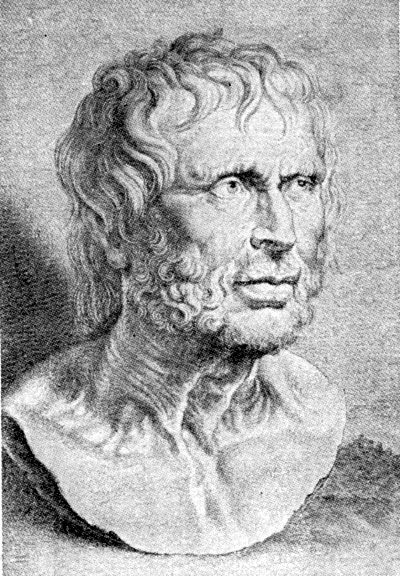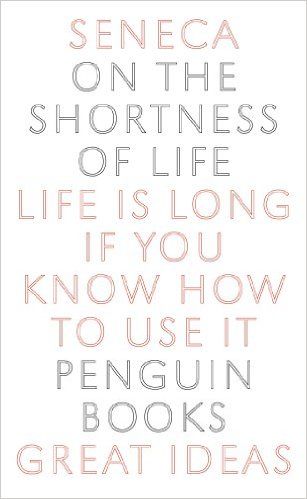Nat Dollin • • 7 min read
8 Career Lessons From an Ancient Stoic Philosopher
Consciousness & Meditation Philosophy Psychology & Happiness

”The nature of the Universe is such that the ends can never justify the means. On the contrary, the means always determine the end.”
— Aldous Huxley
Where do you spend (yes, spend) the majority of your waking hours?
Do these environments allow you to develop and express your ideals?
Allocating substantial thought to these questions is essential if we are committed to moving towards our highest selves, as the influences we expose ourselves to most frequently will undeniably shape our attitude, our demeanor, and our trajectory.
My answer to question #1 is currently twofold: at home and at work. Including time spent traveling there and back, my most recent job saw me spending a notable 10 hours a day at work under someone else’s jurisdiction. I usually sleep for 6-7, prepare and eat my meals for 1-2, and practice yoga and meditation for, on average, 2 hours. I also like to read, work on my photography, escape to the mountains, write meaningful letters to friends and family, sit and ponder, take care of my home environment, pay attention to personal hygiene and be at liberty to spontaneously say Yes! to unexpected invitations. But wait a minute… did I just run out of hours?
“It is not that we have a short time to live, but that we waste a lot of it. Life is long enough, and a sufficiently generous amount has been given to us for the highest achievements if it were all well invested.”
— Seneca
Interpreting Seneca’s Ancient Wisdom as Modern Career Advice

Seneca (4 BC — 65 AD) was a Roman Stoic philosopher, statesman, dramatist, and humorist. I recently revisited Seneca’s sobering observations on the shortness of life. An initial reading had provided me with the reductive sense that Seneca was advising each of us to retire immediately, and that all labor for other men was to be considered a waste of valuable time.
Lesson #1:
“People are delighted to accept pensions and gratuities, for which they hire out their labour or their support or their services. But nobody works out the value of time: men use it lavishly as if it cost nothing.
And so […] extract yourself from the crowd, and as you have been storm-tossed more than your age deserves, you must at last retire into a peaceful harbor.”
— Seneca
However on second reading, I found myself receiving his reflections in a different light. What the Stoic philosopher seems to be reminding us of can be brought back to a familiar platitude: Time is precious. And instead of reserving application of this knowledge for the hours that we would typically label as “free,” we can choose to embed this philosophy into all our engagements, and thereby reclaim all hours as ours.
Lesson #2:
“When ample […] wealth falls to a bad owner, it is squandered in a moment, but wealth however modest, if entrusted to a good custodian, increases with use, so our lifetime extends amply if you manage it properly.”
— Seneca
So. What does properly managing a lifetime entail? The principal elements of Seneca’s meditation suggest ample leisure time, prioritizing an understanding of one’s own life, and not sequestering your most precious asset to anyone who is ignorant of its worth.
Inspired. Admirable, even. But not necessarily practical from the outset for those individuals who wish to be able to pay the bills, eat well, purchase the occasional book or record, and traverse the globe at a moment’s notice. Forgive me for stating the obvious, but for an idealist like myself, this was an embarrassingly recent revelation: modern life requires money.
Which brings us to the next valuable question:
Why Do We Work?
Once you’ve answered that one with your own set of particulars, we can move into the domain of how we can work. It’s important to first establish the why, so that we can always refer back to our bigger picture; we can always maintain a sense of the forest even when we’re immersed amongst the trees. With the why serving as our motivation, we bring our attention to the how.
Lesson #3:
“Call to mind when […] you were ever at your own disposal; when your face wore its natural expression; when your mind was undisturbed; […] how many have plundered your life when you were unaware of your losses; how much you have lost through […] the seductions of society; how little of your own was left to you.”
— Seneca
We don’t have to plunder our life, unaware of the losses, or forego our natural expressions—we can instead alter how we approach our work, and qualify time spent on it as ‘at our own disposal’ nonetheless. By employing Seneca’s cautionary insights and applying them to the modern, practical life, we can infuse our working ethos with a sense of deep gratitude, vivid intention, and—even—wonder.
I used to work as a stewardess (read: “maid”) on a private yacht. Cleaning standards were exceptionally high—I’m talking Q-tipping between the bathroom tiles—and required hours of attention to execute. To begin with, I found these hours mind-numbing and soul-draining. But then a life-changing friend offered this advice: “Make it work for you.”
Lesson #4:
“Everyone hustles his life along, and is troubled by a longing for the future and weariness of the present. But the man who spends all his time on his own needs, who organizes every day as though it were his last, neither longs for nor fears the next day. For what new pleasures can any hour now bring him?”
— Seneca
This was a game-changer. What needs of my own could I be simultaneously tending to with those hours? To begin with, I bought a speaker, downloaded some Alan Watts lectures, and entered those marble chambers with an entirely different perspective. As I scrubbed, I would focus on my breathing. As I polished, I would listen. As I buffed, I would contemplate. Suddenly I was no longer handing over my day to seemingly meaningless pursuits, I was getting paid to philosophize and enrich my understanding of existence!
Lesson #5:
“True happiness is to enjoy the present, without anxious dependence upon the future, not to amuse ourselves with either hopes or fears but to rest satisfied with what we have, which is sufficient, for he that is so wants nothing. The greatest blessings of mankind are within us and within our reach. A wise man is content with his lot, whatever it may be, without wishing for what he has not.”
― Seneca
Eckhart Tolle touches on this idea when working with individuals who feel uninspired by their work. He suggests that in such a case, one’s efforts may be better directed not towards an attempt to find usefulness in the work itself, but by using the working environment as a backdrop—an opportunity—to practice presence and alertness. This type of practice, as I experienced for myself, is most accessible when the tasks at hand are simple, even menial.
Some of you may currently be engaged with work that you already love. Work that makes you leap out of bed each morning in eager anticipation of “what new pleasures” any hour could bring. But for others, perhaps recurring stints of less-than-engaging—albeit temporary—work in order to fund the next project, pay for that transatlantic flight, or cover the rent, are a reality. This is where what David Foster Wallace calls “the work of choosing” comes into play.
Lesson #6:
“He used to beguile his labors with this consolation, sweet though false, that one day he would live to please himself.”
— Seneca
We can choose to feel pissed off or bored by our work, or we can choose to “live to please” ourselves immediately. Either way, it is a choice we must make consciously. What Seneca aims to impress upon us is the tragic loss of irreplaceable time that simply evaporates when we allow ourselves to procrastinate our own enjoyment of life.
Lesson #7:
“There will always be causes for anxiety, whether due to prosperity or to wretchedness. Life will be driven on through a succession of preoccupations: we shall always long for leisure, but never enjoy it.”
— Seneca
By making the choice to employ every waking hour to our advantage, no matter our obligations, we can maximize on the precious time we have been allotted. How we do this will differ between individuals according to their personalized ideals and priorities. For me, it meant using my coffee break to meditate outside in the sunshine. It meant using my lunch hour to go for a run or a swim, or read a book, and eat something small when I returned. It meant paying acute attention to my posture if I was ironing for hours, or listening attentively to what my colleagues were really communicating, as opposed to simply what came out of their mouths. At the end of days like these, I would feel an unprecedented calm. I witnessed the disintegration of the seam between working and non-working hours. Most importantly, I really felt as though I was living my life, and not postponing or missing out on anything. And if that’s what we’re aiming for—learning how to live—I can think of no better time to begin than with the day at hand.
Lesson #8:
“Living is the least important activity of the preoccupied man; yet there is nothing which is harder to learn. There are many instructors in the other arts to be found everywhere […] But learning how to live takes a whole life.”
— Seneca
Find further ideas for igniting a spark in your day to day activities here.

On the Shortness of Life
by Seneca
On The Shortness Of Life is handily available in pocket-size form. Don’t let its feathery weight fool you—the prose is dense and, at times, gritty. But only in the way that truth often tends to be. Seneca’s insights are alarmingly apt for life in today’s world, and well worth the time taken for reflection.










